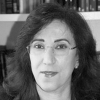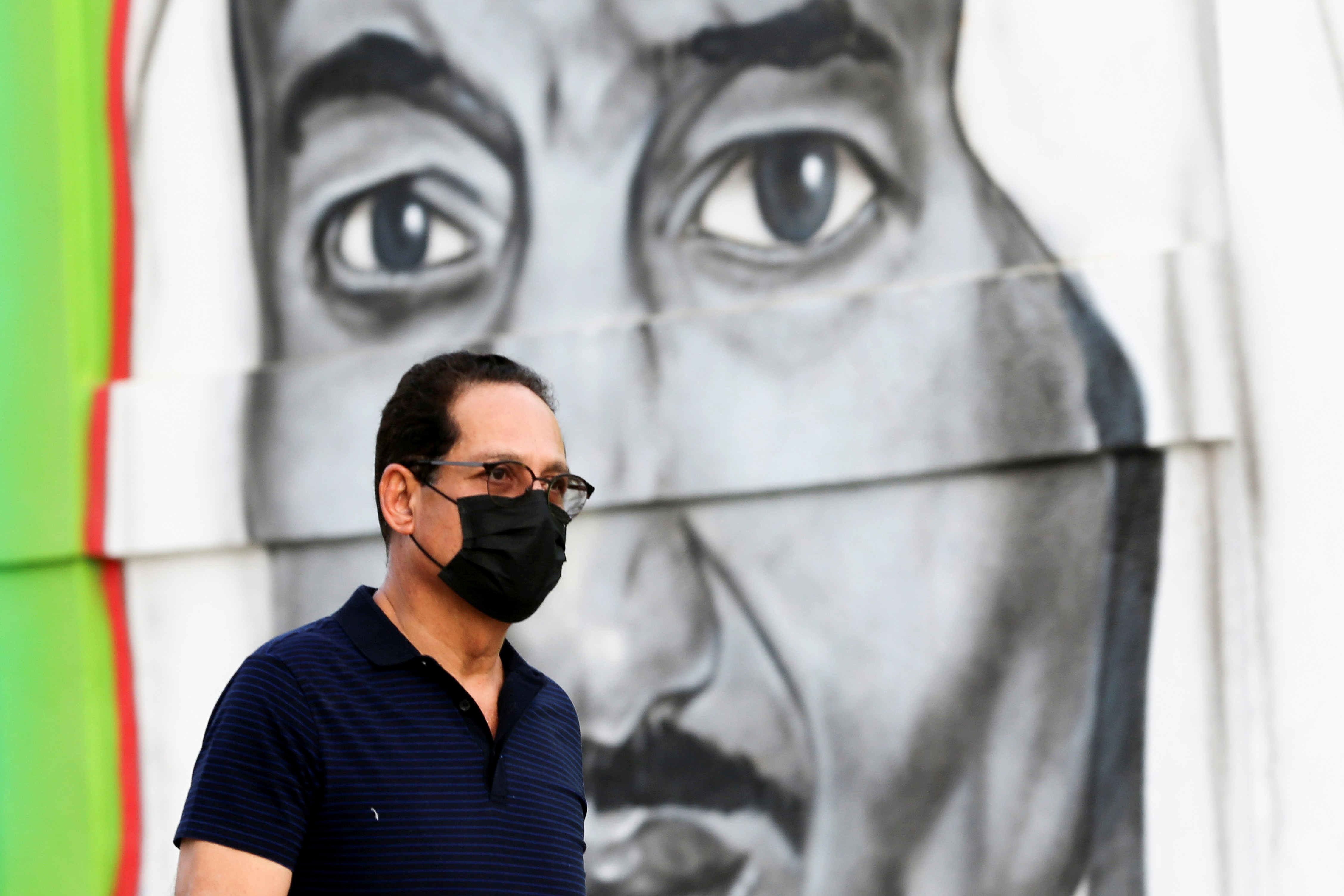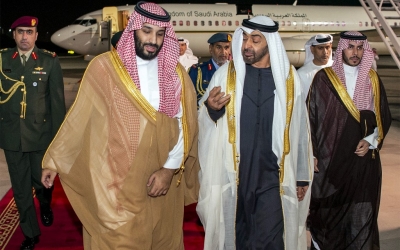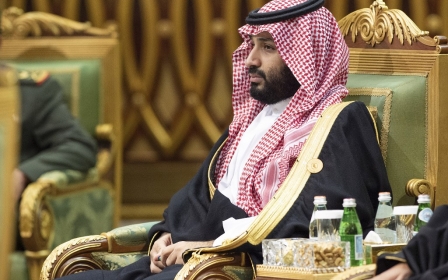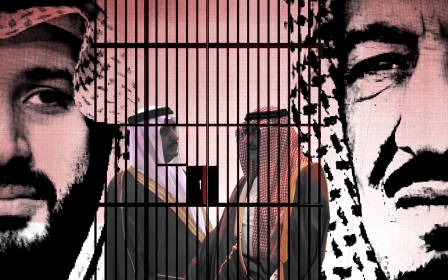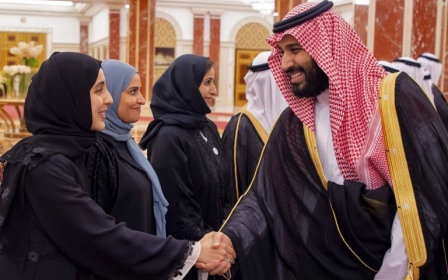Coronavirus has shut MBS's Saudi circus show. What will he do now?
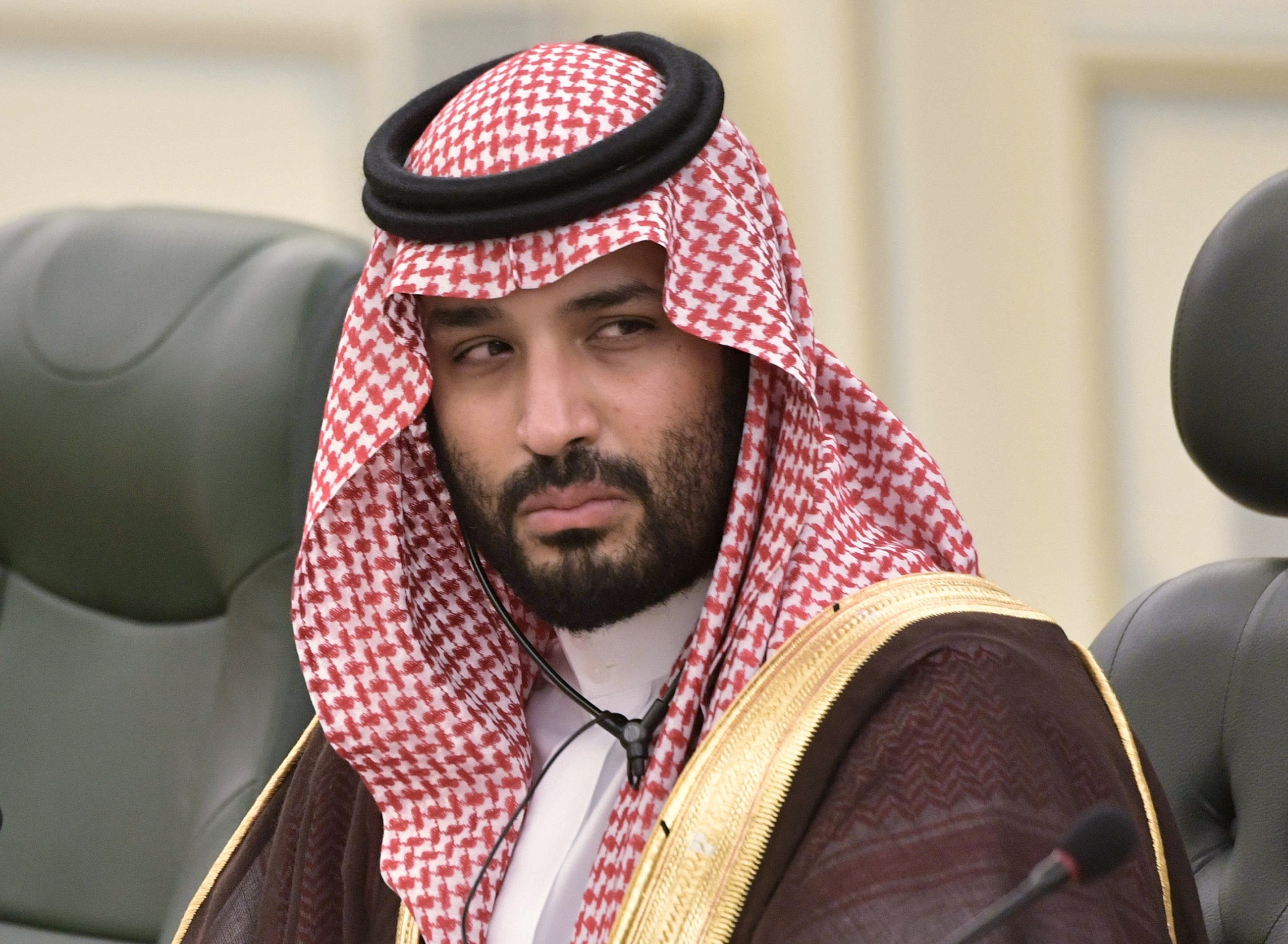
The holy cities of Medina and Mecca are quiet and devoid of pilgrims. Cinemas, sports stadiums and concert venues are closed.
The coronavirus pandemic is threatening Saudi Crown Prince Mohammed bin Salman's new legitimacy narrative.
His Vision 2030 and National Transformation Programme are now stumbling. Collapsing oil prices, suspended entertainment programmes, and vanishing tourism are but a few of his problems, all a direct outcome of lockdowns, curfews, and social distancing imposed in response to the pandemic.
While the exact numbers of infections and deaths in the kingdom remain elusive, the latest decision to impose a curfew on the two holy cities reflects a growing menace that is defying the earlier propaganda about how the government was on top of the problem and how it was strictly "a Shia" issue.
Abysmal sectarianism
New MEE newsletter: Jerusalem Dispatch
Sign up to get the latest insights and analysis on Israel-Palestine, alongside Turkey Unpacked and other MEE newsletters
At the beginning of the outbreak of the disease, Mohammed bin Salman quickly sent his troops to encircle Qatif, where a Shia majority live, thus sending a strong message that those Saudis who had defied an earlier ban on visiting Iran had brought back with them a serious infectious disease.
The decision to impose a curfew on Mecca and Madina defied earlier propaganda about how the government was on top of the problem
They were encircled in their own town while state propaganda engaged in sectarianisation of the coronavirus pandemic in the country. It was only a matter of days before infected Saudis appeared in major cities such as Riyadh and Jeddah.
Now Mecca and Medina face a strict curfew which may be in place for some time, thus threatening a policy to expand the number of pilgrims, often referred to as "religious tourists" as part of the drive to diversify the economy.
Muslims around the globe have been told not to make plans for the annual pilgrimage in August this year. The Umrah, a minor pilgrimage, has totally stopped as the holy precinct is shut for prayers. The mosque imams were told to go home.
End of loyalty circus
The coronavirus is currently undermining the crown prince’s hyper-nationalist agenda, which needs youthful crowds to cheer and clap in pop concerts, football stadiums, and boxing matches. All have disappeared from the recently erected concert halls, theatres and cinemas of major cities.
Saudi Arabia's dwindling revenues from the collapse of oil prices are bound to limit MBS' ability to fund the tokens of allegiance and obedience for loyal subjects
Street parties were a fleeting moment of fun and relaxation but, above all, they were opportunities to applaud the recently launched entertainment circus of Mohammed bin Salman. Now the circus where loyalty to the crown prince was flaunted is a fading memory.
The crown prince will now have to provide bread instead of circuses - but Saudi Arabia's dwindling revenues from the collapse of oil prices are bound to limit Mohammed bin Salman's ability to fund the tokens of allegiance and obedience for loyal subjects.
Drawing on sovereign reserves and borrowing from global markets are his only options.
Coronavirus has made the crown prince’s cult of personality invisible in deserted shopping centres, squares and streets - only his silent portraits decorate empty spaces. His online propaganda is struggling to turn him into a virtual icon, a saviour from the coronavirus menace.
At times of crisis, the crown prince abruptly withdraws from the public gaze. For example, immediately after the murder of Jamal Khashoggi in Istanbul, his father, King Salman, made unusual appearances around the country, reinforcing support for his accused son.
Bread over propaganda
Recently, the king addressed the nation, describing the coronavirus as a challenge. He was later positioned as the central figure in the G20 virtual summit that was recently organised from the kingdom’s media centre in Riyadh. Calling for global cooperation to fight coronavirus, King Salman's efforts served propaganda and yielded nothing but noise.
Yet the crown prince may not be able to hide in the shadow of his father for long, as the pandemic exposes even the most open and democratic systems of governance, let alone those centralised autocratic rulers whose rhetoric can no longer assure desperate populations.
Like the rest of the world, Saudis are locked in the safety of their homes, contemplating an uncertain future, with a shrinking welfare state no longer able to spend money on their wellbeing, providing jobs, lavish salaries, health facilities, housing and educational services.
The oil-based economy is under stress and revenues may never return to the levels seen in earlier times.
Pilgrims may not come in August, adding a further blow to an economy struggling to free itself from dependence on oil. As the global economy grinds to a halt, Saudi Arabia could lose its chance to become a favoured destination for foreign investment.
Mohammed bin Salman will continue to search for new sources of legitimacy with which to convince his hesitant subjects. His ability to manage the coronavirus crisis will prove whether he really is the saviour his propaganda claims.
The views expressed in this article belong to the author and do not necessarily reflect the editorial policy of Middle East Eye.
Middle East Eye delivers independent and unrivalled coverage and analysis of the Middle East, North Africa and beyond. To learn more about republishing this content and the associated fees, please fill out this form. More about MEE can be found here.


